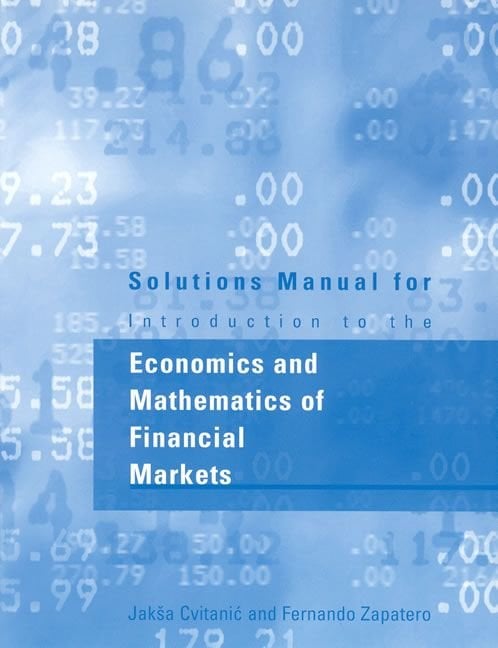This book is intended as a contribution to the theory of markets with imperfect information. The subject being nearly limitless, only certain selected topics are discussed. These are outlined in the Introduction (Ch. 0). The remainder of the book is divided into three parts. All results of economic significance are contained in Parts II & III. Part I introduces the main tools for the analysis, in particular the concept of an information structure. Although most of the material presented in Part I is not original, it is hoped that the detailed and self-contained exposition will help the reader to understand not only the following pages, but also the existing technical and variegated literature on markets with imperfect information. The mathematical prerequisites needed, but not explained in the text rarely go beyond elementary calculus and probability theory. Whenever more advanced concepts are used, I have made an effort to give an intuitive explanation as well, so that the argument can also be followed on a non-technical level (cf. e.g. the treatment of the “generic” viewpoint in Ch. 9). In the same spirit, discussion of mathematical assumptions is limited to those which have economic sig- ficance, whereas purely “technical” assumptions (like differentiability or integrability of certain functions) are usually made without comment whenever convenient. The logical interdependence of chapters is as follows: Ch. 3 . Ch. 1 /~I–=—- Ch. 4 Ch. 2 Ch. 8 ~I -=— /"’-…. Ch.












